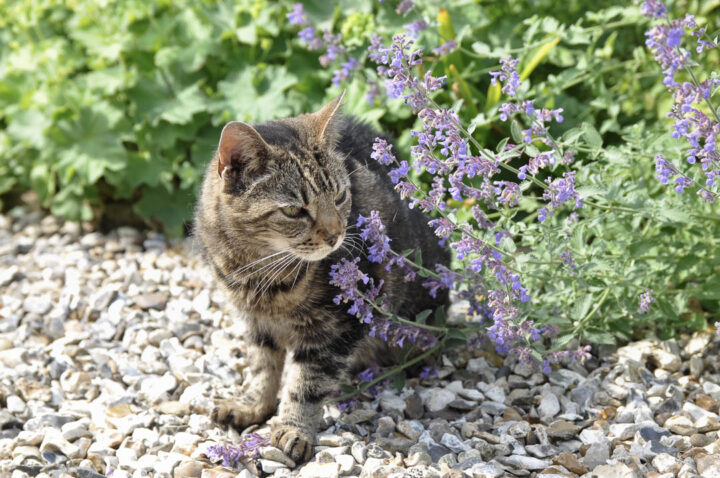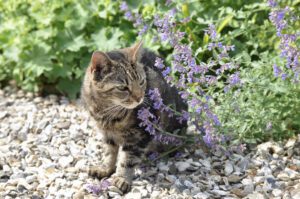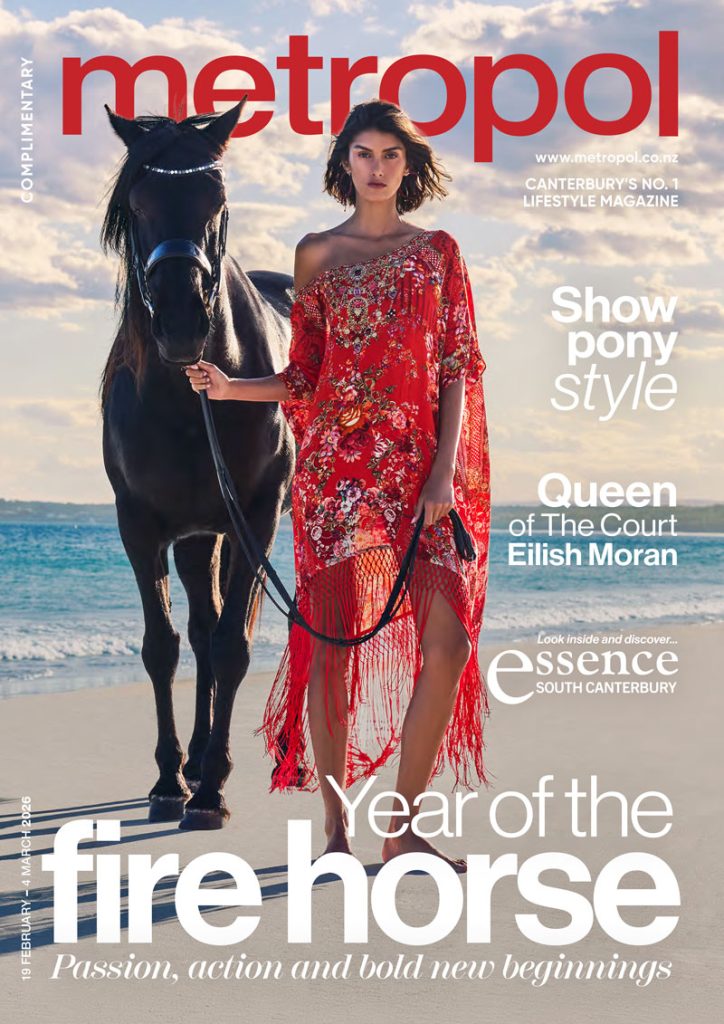
Crazy for catnip: Ourvets
Drooling, purring, vocalising, zooming or even dozing are all signs cats can show after exposure to catnip. Ourvets Halswell Practice Manager Lauren Harvey gives Metropol the lowdown on the perennial herb, which can be a handy tool for cat owners.

Catnip (Nepeta Cataria), a perennial herb, is known to produce euphoria for cats due to containing a chemical called nepetalactone.
Sensitivity to catnip is an inherited trait, says Lauren.
“Even bigger felines like tigers and lions can be sensitive to it. Although around one third of cats may not be affected at all by catnip.
“When your cat sniffs or chews the plant (or even rolls around in it) they may show all sorts of interesting signs. Your cat may drool or purr, they may vocalise or zoom around like they’re on a mission – or all the above!”
She says how your cat reacts depends on how they are exposed to the plant.
“If they sniff the plant, they may become excited or go crazy. However, if they eat the plant this may have more of a sedative effect and they will likely be more peaceful and relaxed.”
Catnip is relatively easy to grow outdoors or as a houseplant, and it can also be purchased in toys, sprays, scratching posts or dried specifically for cats.
“If your cat is affected by it, you can use it to help make their things that they may have otherwise ignored, like a new bed or scratching post, more interesting to them.
“Luckily, catnip is not harmful or addictive to our cats. In fact, our Kitty City Hotel and Cats on Cranford catteries often use toys containing catnip or may even have a plant on occasion to give the cats some fun and entertainment while they enjoy their stay.”
To book your cat’s stay in the aformentioned catteries or for more infomation on Ourvets, visit the website below.




